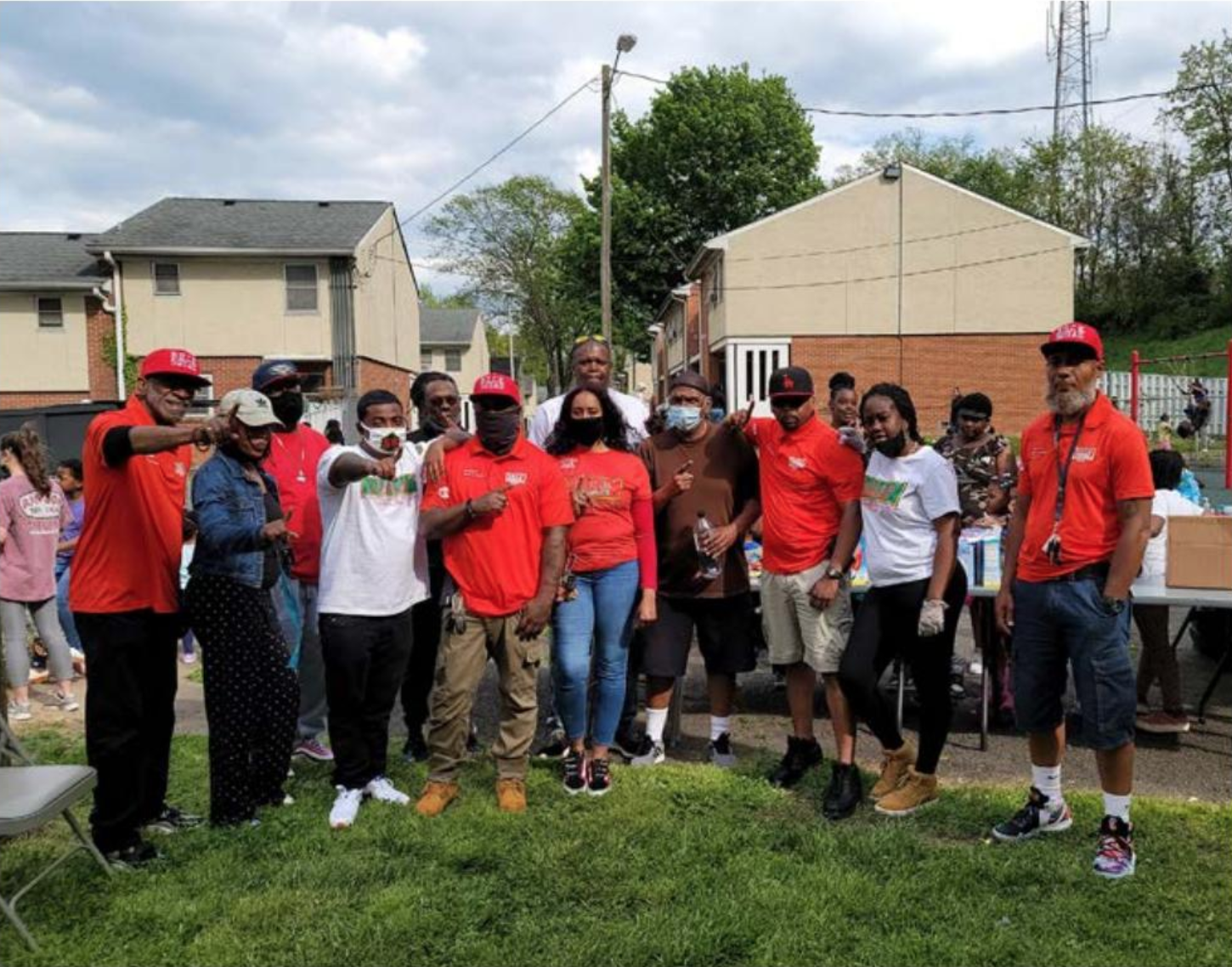Following the arrival of the coronavirus pandemic, gun violence spiked across Charlottesville, particularly in the city’s predominantly Black neighborhoods. There were four gun homicides in 2020—a notable uptick from the two homicides in 2019 and one in 2018. By the end of the year, the Charlottesville Police Department had responded to 122 shots-fired incidents. This rise in gun violence continued into 2021, with multiple shootings taking place in or near public housing communities. However, the year ended with zero homicides.
The city has the B.U.C.K.—Brothers United to Cease the Killing—Squad to thank for this drop in gun-related deaths, says its Executive Director Herb Dickerson. Since last January, the nonprofit squad has intervened in conflicts, attempting to talk down clashing groups before they start shooting.
In 2021, Dickerson says the squad intervened in about 79 incidents. So far this year, that number has been 46.
“The whole thing is developing relationships within these communities, and letting folks know what you’re attempting to do to help [the] guys with these guns and selling drugs. There is another way,” says Dickerson. “Our personal experience and reputation proves that you can do different.”
In October, City Council donated $50,000 to the squad, which helped compensate its dozen members, as well as increase its patrols in predominantly Black neighborhoods. However, the $50,000 has now run dry, forcing the group to rely on private donations to stay afloat.
“The $50,000 [was] a good start. We got the message out about what we’re doing, and people started supporting us,” says Dickerson. “You can’t get a person to go out in the streets at 2 o’clock in the morning for free—it just wouldn’t make sense to put their lives on the line.”
Councilor Michael Payne and then-mayor Nikuyah Walker voted against the $50,000 donation. Payne specifically cited concerns councilors had heard from the Public Housing Association of Residents and the Charlottesville Redevelopment and Housing Authority. B.U.C.K. Squad founder Pertelle Gilmore severed all ties with the squad last June.
“The draw with the squad is that a lot of them are from the streets… Some of them deal with a lot of trauma, and just have personal issues,” squad board chair Kimberly Hayes told C-VILLE in October. “[Gilmore] and the squad came to an agreement that they thought it would be best that he deal with his issues.”
In response to these concerns, the squad created an accountability and grievance policy last year. It has also developed an “open relationship” with CRHA Director John Sales, says Dickerson.
“Some of the folks that were against us are family members of drug dealers,” claims Dickerson. “They don’t want us around because they’re benefiting from what these folks are doing.”
Under Dickerson’s leadership, the squad has continued to connect conflicting parties with the community resources they need, like mental health care and job opportunities, and continually follow up with them to make sure they do not turn back to violence.
“When you get to know them, they don’t really want to shoot these guns anyway,” says Dickerson. “Most of them are just trying to drive attention to themselves,” especially those whose fathers are incarcerated.
“They just don’t have no understanding of what life is really about, and how you can sustain your life,” he adds.
In addition to gun violence, the squad receives calls on its 24-hour hotline (365-4187) related to domestic violence, substance abuse, missing children, and other emergencies.
But the squad has not had the capacity to intervene in and prevent every shooting in the city. In fact, last year, amid a nationwide upswing in gun violence, CPD responded to over 250 reported shots-fired incidents. This year, there have already been several shootings, including at Fry’s Spring Beach Club in March. Two men sustained non-life threatening injuries, and police collected more than 100 cartridge casings at the scene. (Two men have since been arrested in association with the crime.)
“This is not just isolated to First Street or West Haven,” says Dickerson. “Anybody can get killed.”
In Charlottesville and across the country, gun violence is only expected to rise over the summer.
“There’s longer days. People are drinking more, smoking marijuana more, using drugs more,” says Dickerson. “That’s the catalyst for gun violence.”
The nonprofit is currently working to secure several grants in order to hire 10 to 15 more violence interrupters, so it can place a team in each of the city’s predominantly Black neighborhoods this summer.
To tackle the root causes of gun violence, the squad also aims to expand its community programming. It plans to continue hosting youth events this summer, and will also work to prevent recidivism. In collaboration with Piedmont Virginia Community College, member Bryan Page recently developed a 12-week re-entry program that connects formerly incarcerated people with job training and mentorship. Around 4,500 people are scheduled to be released from Virginia prisons this summer. According to Virginia Department of Corrections’ figures, about 3,200 of those releases are due to a new state law expanding the earned sentence credit program—Dickerson expects over 100 to be returning home to Charlottesville.
“The first 72 hours are the most important hours of a person getting out of jail. That’s when he’s going to choose what direction he’s going to go in,” says Dickerson. “A lot of these guys are going to be re-incarcerated…if they don’t have certain avenues they can travel to get their life together.”
With additional funding, the organization plans to offer mental health services, career development, financial planning, grief counseling, vocational training, and other critical programs, as well as establish a permanent physical headquarters—including mediation centers and wraparound services—in the near future.
To learn more about or donate to the B.U.C.K. Squad, visit bucksquad911.org.
